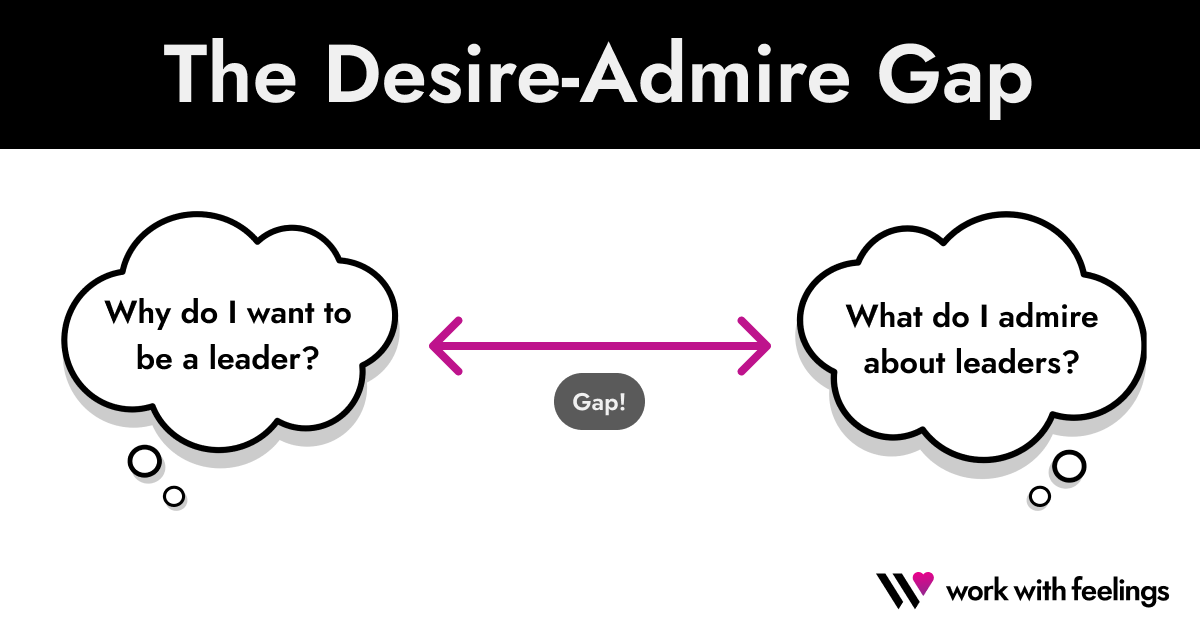The Desire-Admire Gap in Emerging Leaders
April 19, 2023
Mathias Gran
It is incredibly gratifying to explore and shape emerging leaders’ motivations to lead. Since I started teaching leadership and development at the graduate level, I became part of a selection panel to review student applications for each leadership cohort. The majority of prompts on the application ask the students why they want to become a leader, or what they desire as a leader. The final prompt asks the students to describe a leader who they admire.
Nearly all applicants provide starkly different answers for these two sections.
For the “desire” prompts, applicants typically refer to their career ambitions: status, pay, promotion, authority, influence, external validation, etc. They want to become leaders so they can finally be in a position to do things better (from their perspective), to have a say, to feel respected, to get things done. This is a doubling-down on the skills and perspectives that made them exceptional contributors, achievers, and experts. It’s often a source of pride and identity that they believe will propel them even further in their careers. It’s still a lot about themselves.
For the “admire” prompt, nearly all applicants share a story about a person who made them feel affirmed or supported in something meaningful to the applicant.
Isn’t that interesting? Do you see the contrast? I wonder why the same person would describe their leadership aspirations so differently than their own accounts of the people who inspired them.
This is what I call The Desire-Admire Gap. For this activity, it looked something like this:
- I desire a leadership role for bolstering my status (possibly motivated by an insecurity)
- I admire leaders for they way the made me feel (possibly building confidence around an insecurity)
When describing a leader they admired, the applicants didn’t highlight how much power the leader had. Or their status. Or how they ascended the org chart. Or how expertly they used a particular skill. Nobody mentioned how rich the leader was. There wasn’t much discussion about the leader’s achievement, at all! It was about character, demeanor, and affect – conclusions derived from feelings.
There were stories about parents demonstrating work ethic while making space for family. There were stories about managers instilling confidence by noticing the person in a passing situation. There were stories about having clear and challenging feedback delivered with care. There were stories about leaders creating stability by being grounded, calm, and consistent.
The stories were all about leaders helping others feel validated, appreciated, welcome, and supported, particularly in areas where the person lacked confidence or felt like an imposter. These should be the ambitions of an emerging leader.
To close the gap, we need emerging leaders to experience and desire the deep gratification that comes from connecting with, inspiring, supporting, and developing others. We need to help emerging leaders process their more self-interested ambitions and see that they can have both the affirming perks of success and be their own version of the leaders they admire.
Moving from achiever to believer requires new skills and perspectives while shedding some strongly-held sources of pride or identity. It’s not always obvious or easy for the emerging leader. The good news is that it’s possible with some willingness, curiosity, openness, and effort.
Do you want to know about The Desire-Admire Gap in your emerging leaders?
Do you want to start exploring what it might look like to be more like the leaders you admire?
Schedule a discovery chat today!
